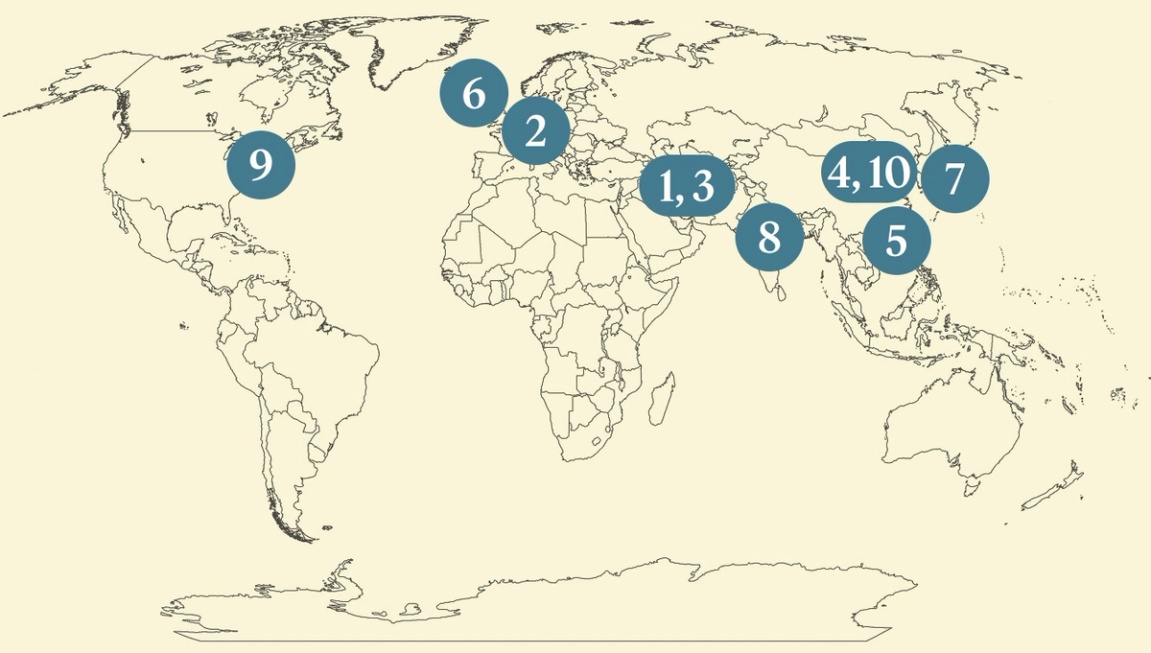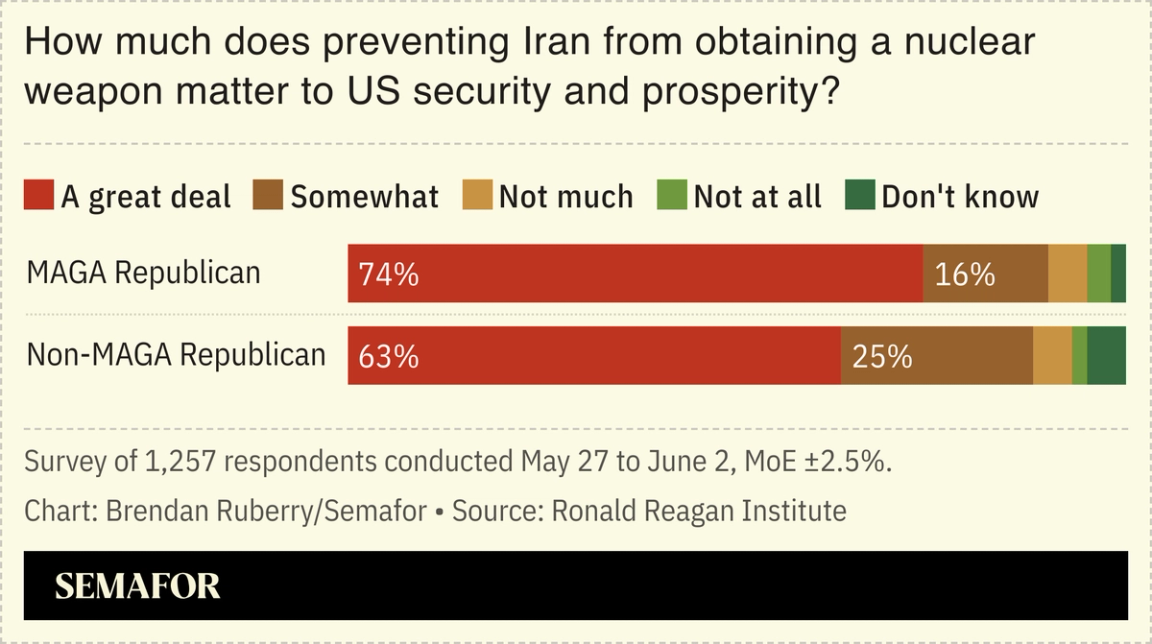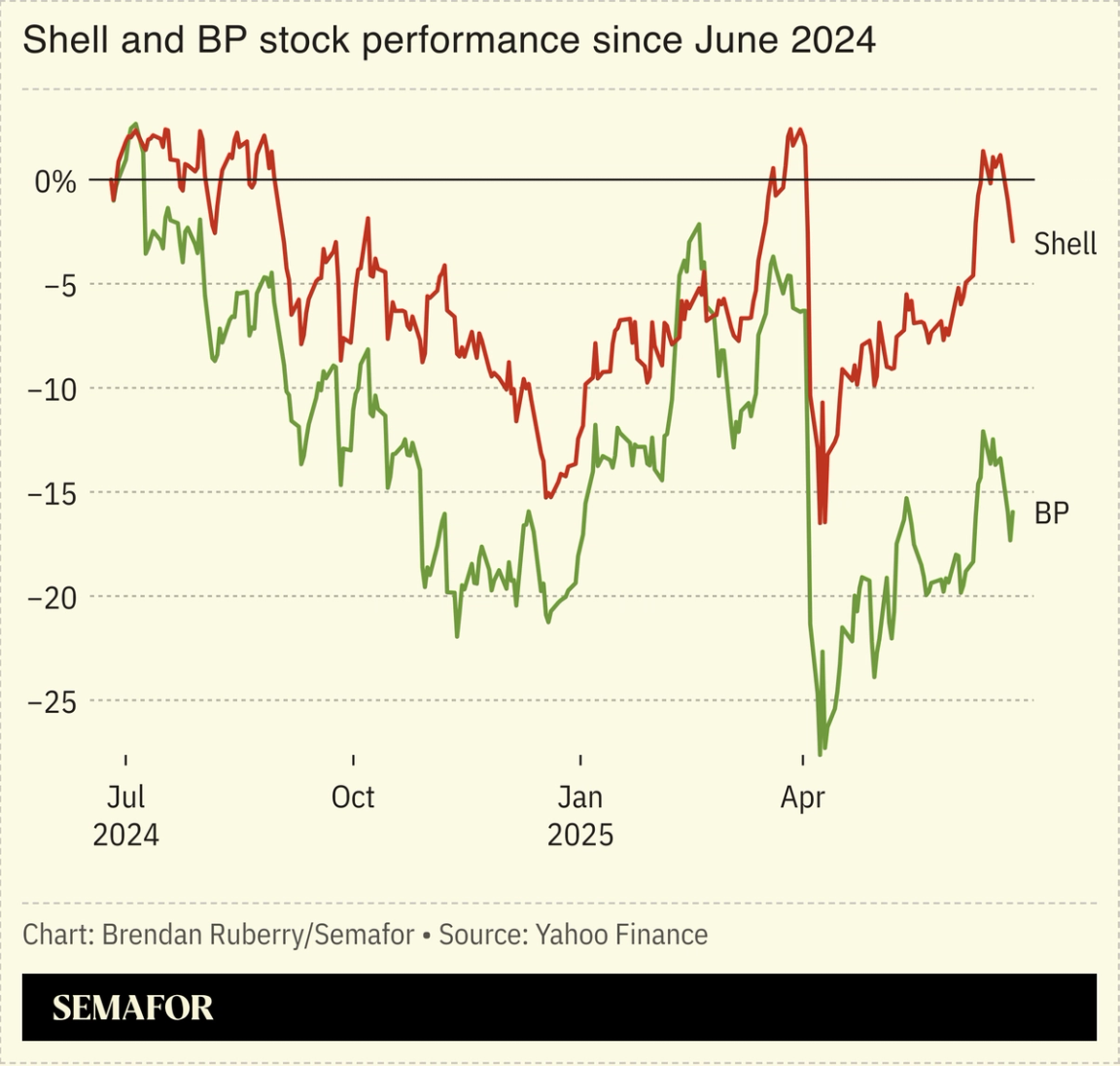| | Donald Trump warms to NATO, ‘Summer Davos’ begins in China, and India sends its first astronaut to t͏ ͏ ͏ ͏ ͏ ͏ |
| |  | Flagship |  |
| |
|
The World Today |  - New US-Iran talks
- Trump warms to NATO
- Can the US be isolationist?
- Summer Davos in China
- HK democracy group folds
- Shell-BP talks
- Anthropic in Tokyo
- First Indian astronaut to ISS
- Transatlantic heat
- Ancient human cousin skull
 Why museum benches deserve as much attention as the art. |
|
Trump signals easing of Iran stance |
 Brian Snyder/Reuters Brian Snyder/ReutersUS President Donald Trump said Washington would hold fresh talks with Iran next week, but signaled a nuclear deal isn’t necessary after the weekend’s strikes on Tehran’s enrichment facilities. Speaking at the NATO summit on Wednesday, Trump suggested he might ease his “maximum pressure” campaign on Iran, saying he had no problem with China buying oil from the Islamic Republic, which needs oil money “to put that country back into shape.” The president also pushed back on reports that the US’ strikes set back Iran’s nuclear program by just a few months. Trump’s swift push for an Iran-Israel ceasefire reflected his whipsaw policy toward Tehran, and he now seems to believe “the Iran thing is settled,” journalist Laura Rozen said. |
|
 Piroschka Van De Wouw/Pool/Reuters Piroschka Van De Wouw/Pool/ReutersUS President Donald Trump left the NATO summit Wednesday feeling warmer toward the transatlantic bloc, after months of criticizing European allies over security commitments. Trump said his views changed after NATO leaders showed they take defense spending seriously by agreeing to commit 5% of GDP to the sector. The gathering in the Netherlands was “tailored” for the American president, The Washington Post wrote, designed around brevity, flattery toward Trump, and the sidestepping of touchier subjects like Ukraine. But even as Europe celebrates keeping Trump on board, the continent’s leaders could have a difficult time convincing the public that a big defense spending push is necessary, Foreign Policy’s editor-in-chief wrote. |
|
Can US ever fully isolate? |
 The US moved to deepen its retreat from the world stage this week, though analysts question whether Washington can ever truly be isolationist. Thousands of State Department employees could be laid off Friday, Semafor reported, part of the Trump administration’s reorganization to “promote America’s interests,” which Democrats argue could cede ground to adversaries. And amid Washington’s foreign aid cuts, Health Secretary Robert F. Kennedy Jr. said the US would stop contributing to a global vaccine alliance. But the US’ involvement in the Iran-Israel conflict showed “America’s dreaded retreat from the world is more talked about than strictly realistic, whoever is the president,” the Financial Times’ Janan Ganesh argued. Washington simply has “too many interests and assets in too many places.” |
|
China’s ‘consumption powerhouse’ goal |
 Go Nakamura/Reuters Go Nakamura/ReutersChina doubled down on its efforts to boost demand in the face of US tariffs. Beijing is becoming “a mega-sized consumption powerhouse,” Premier Li Qiang told business leaders at the World Economic Forum’s “Summer Davos” conference in China. The country has led an aggressive consumer subsidy and stimulus program aimed at boosting spending, in part to buffer its economy amid US trade tensions. Without mentioning Washington in his remarks, Li called for trade to not become a political or security issue, saying “globalization will not be reversed.” One economist predicted that while China will continue to face challenges this year, its turnaround is “not as far-fetched as we thought before.” |
|
HK pro-democracy group disbanding |
 Tyrone Siu/Reuters Tyrone Siu/ReutersOne of Hong Kong’s last pro-democracy groups is reportedly set to disband, five years after Beijing imposed a strict national security law on the city. The League of Social Democrats has remained on the streets even after the 2020 law gave officials a powerful lever to quash dissent, making the group an exception; many similar organizations have already dissolved, and seen top activists arrested. The crackdown has intensified ahead of the law’s five-year anniversary on Monday, Nikkei reported. Local officials have recently pushed to eradicate what they call “soft resistance” across sectors ranging from arts to medicine, though the term hasn’t been clearly defined, Hong Kong Free Press reported. |
|
Shell reportedly in talks to buy BP |
 Shell is in early-stage talks to acquire rival BP, The Wall Street Journal reported Wednesday, in what would be “the largest oil deal in a generation.” BP shares surged following the news, though mellowed after Shell denied the report as “further market speculation.” BP has been under significant investor pressure amid falling share prices, fueled by the company’s ill-fated push into renewables, management turnover, and operational difficulties. The liabilities could render BP a “poisoned chalice” for prospective buyers, RBC analysts said. Any moves on BP by Shell or another rival would also represent the biggest test of the M&A environment yet since US President Donald Trump returned to office, analysts said. |
|
 Anthropic CEO Dario Amodei. Flickr Creative Commons photo/TechCrunch/CC BY 2.0 Anthropic CEO Dario Amodei. Flickr Creative Commons photo/TechCrunch/CC BY 2.0Artificial intelligence startup Anthropic plans to open its first Asia hub in Tokyo this fall, part of a larger push into the continent by tech upstarts, Nikkei reported. The choice by Anthropic, which makes ChatGPT-competitor Claude, to expand to Japan reflects the country’s potential as a growth market for AI: Fewer Japanese corporations have integrated the tech into their systems compared to their overseas counterparts, and chatbot-makers see an opening given the country’s labor shortage. OpenAI set up its first Asia office in Tokyo last year, and now plans to expand to Seoul. AI firms are increasingly looking to Asia after the overnight global success of Chinese startup DeepSeek invigorated venture capital interest in the region. |
|
 What do all budding billionaires have in common? They spend five minutes every morning reading The Hustle. The Hustle’s daily newsletter is a breezy, five-minute morning read that keeps you sharp on everything business and tech. Join 2M+ innovators and sign up today. |
|
First Indian astronaut to ISS |
 Steve Nesius/Reuters Steve Nesius/ReutersAn Indian astronaut is set to visit the International Space Station for the first time, reflecting the country’s growing space ambitions. Captain Shubhanshu Shukla is piloting a SpaceX flight to the ISS for a mission by private US-based company Axiom Space, along with three other crew members, including the first Polish and Hungarian astronauts to visit the lab. Governments without a human spaceflight program pay Axiom for tickets to orbit; India paid $59 million for Shukla’s seat. His voyage could help New Delhi boost its domestic space program: India plans to launch its first crewed mission by 2027, which would make it the fourth country to independently send people to space after the US, Russia, and China. |
|
 Kylie Cooper/Reuters Kylie Cooper/ReutersBoth sides of the Atlantic are sweltering in heat waves. New York City’s Central Park hit 99°F (37.2°C) Tuesday, its highest temperature since 2012, and 150 people fell ill at a graduation ceremony in New Jersey. Heat warnings are in effect across much of the northeast. The UK’s hot spell peaked at 91°F (33°C) in London, but may have felt worse: London Centric reported that migrants to the UK capital from hotter climates have been posting TikToks apologizing for mocking Brits’ complaints about apparently unimpressive temperatures. As well as normal urban heat island effects, London’s air is unusually humid, and the city’s infrastructure and housing stock is built for cooler temperatures, with little air conditioning. |
|
|